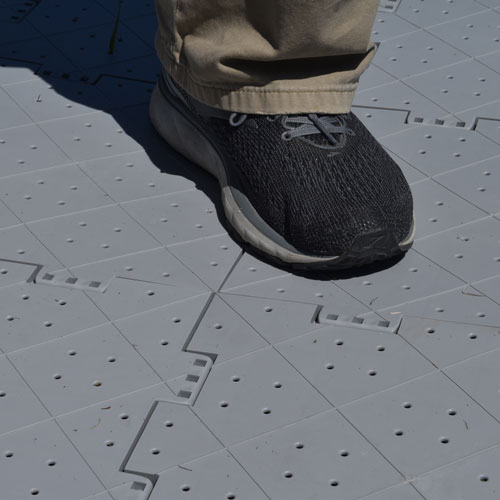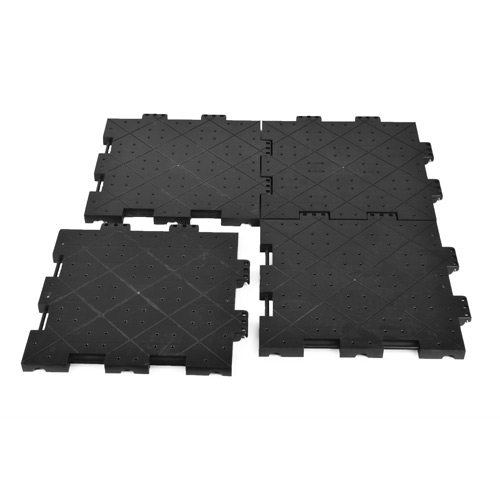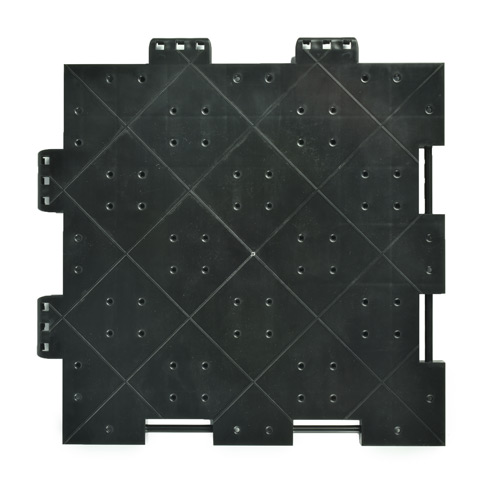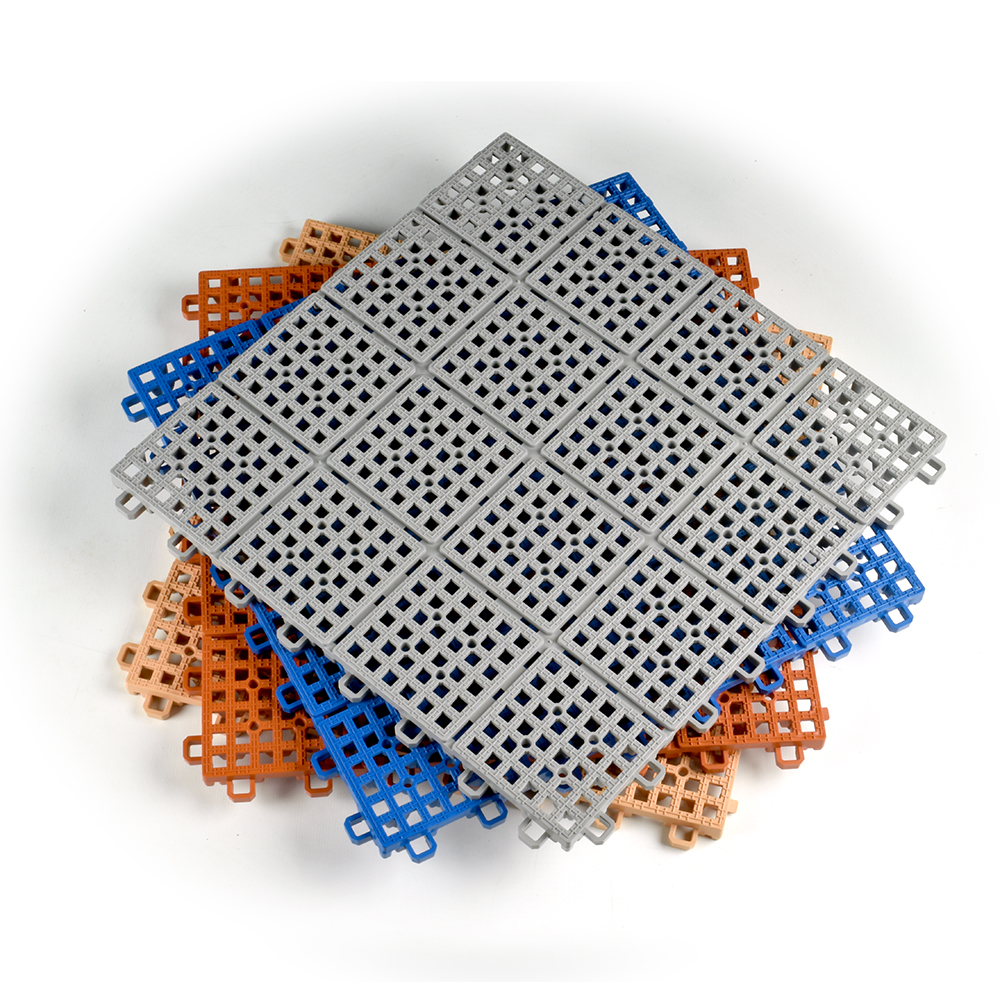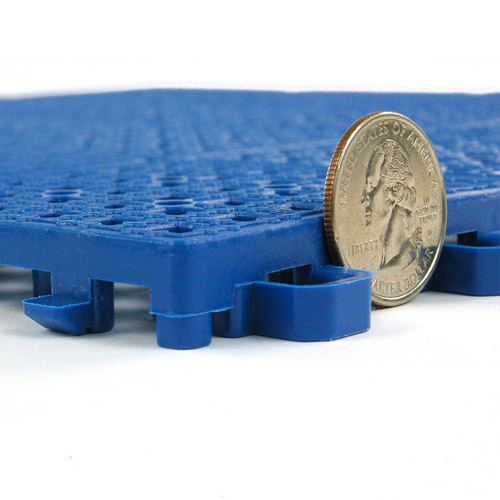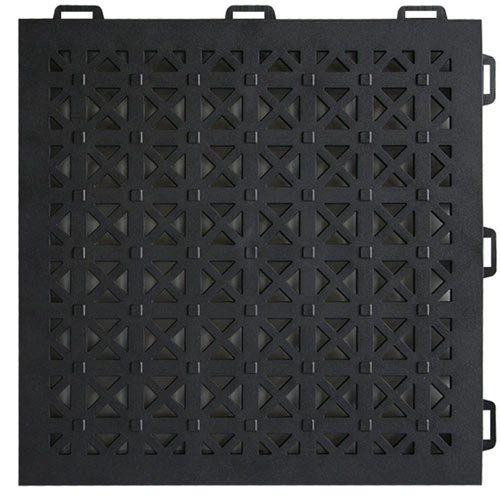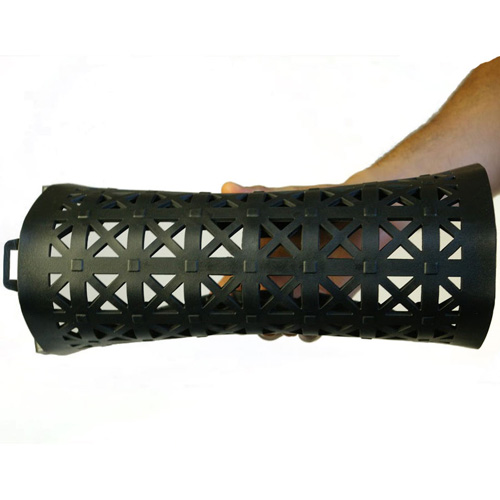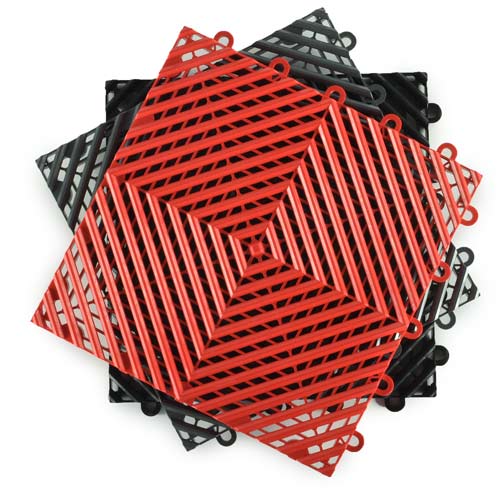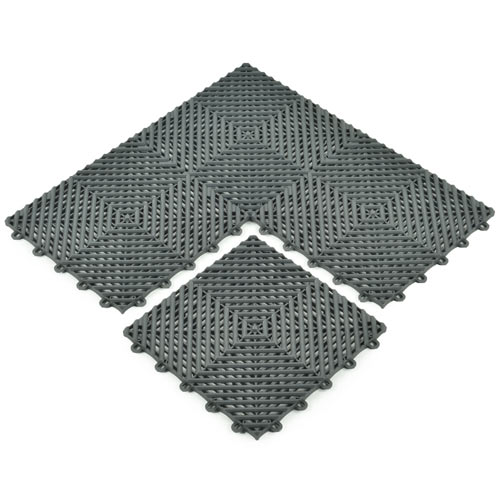What Makes a Good Wood Shed Floor?
Related Product: TurboTile Perforated Garage Floor Tile 5/8 Inch x 1x1 Ft.
Some of the materials that will work nicely to create a wood shed floor include:
- Perforated flexible PVC plastic
- Perforated firm polypropylene plastic
With perforations in the wood shed floor material, water will drain away from melting snow off the firewood. Additionally, the perforations allow air to flow through the flooring, which ensures the items stored in the shed will dry more quickly than with a solid type of flooring. Having a style of flooring that allows for some airflow is a key component in this type of use case.
What’s the Best Wood Shed Floor Over Grass?
If trying to lay out a flooring material for a shed built over the top of a natural base that may not be perfectly flat, consider making use of tiles with a bit of flex to them. The flexible flooring tiles can match the slight undulations that may occur when they are set up over dirt or grass.Certainly, installers do not want to set up a shed for storing firewood over an area that has significant undulations. The wood would be difficult to stack safely in this kind of situation, and the perforated flooring would not be able to match the bumpy ground well.
Instead, select a location that is relatively flat, even when using flexible tiling, for the best results.
StayLock Perforated Tile
A popular option as a wood shed floor that delivers a strong mix of flexibility and durability is the StayLock Perforated Tile. These tiles use PVC plastic in the construction to generate a flexible flooring for use over a natural type of ground, such as grass, gravel, or dirt.
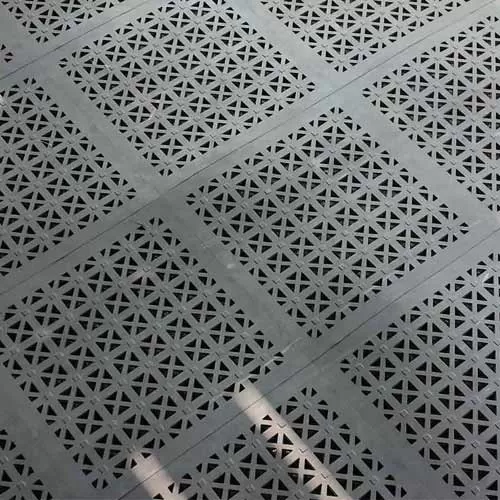
The tile has geometric-shaped perforations that extend through the entire 9/16-inch thickness of the material, allowing any water to drain away from the firewood, resulting in faster drying.
Installing these tiles to create a floor for a shed is a simple process, thanks to the hidden interlocking loop and tab system. For the last row, cut the tiles if needed to fit tightly against the edge of the shed.
Patio Outdoor Tile
A similar option with larger perforated holes to drain away water even faster is the Patio Outdoor Tile product. The primary use case for these tiles involves installations around pools, which shows how efficiently they allow water to drain away.
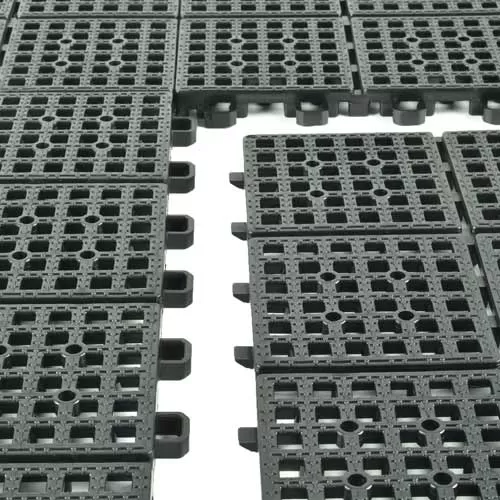
These 1 by 1 foot tiles have square perforations that extend through the entire 1/2 inch thickness of the material. Water drains quickly, ensuring it will not pool on the surface. Air flows through the holes too, drying the firewood efficiently.
What Wood Shed Floor Works Best for Going Over Concrete?
For those installations where the base of the wood shed goes over wood or concrete, a more rigid style of flooring would also work nicely, as the cement or wood flooring should be flat enough to accommodate the hard plastic tiling material.However, when using inflexible tiles as a wood shed floor, it’s still important to have perforations. Without a perforated style of flooring, rainwater that drips off the firewood or snow that melts from the firewood would pool on the surface, preventing the firewood from drying completely and, in extreme cases, leading to waterlogging.
This type of perforated tile allows air to flow around and under the chunks of firewood, which promotes further drying.
Perforated Garage Tile
For firewood that has frequent exposure to rain and snow before it moves into the shed for drying, a type of firm flooring that allows for maximum draining of moisture will be key. The Perforated Garage Tile product can deliver outstanding performance in this use case.
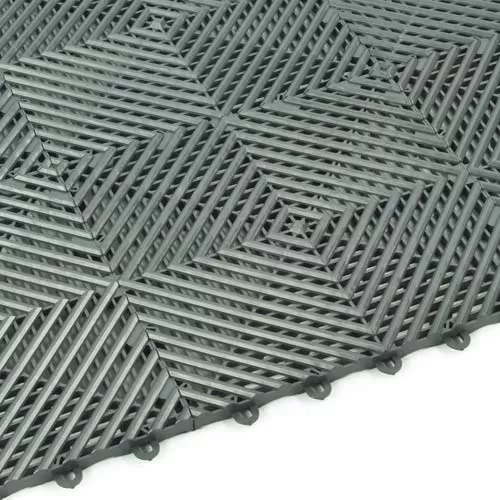
This model consists of polypropylene plastic that’s 5/8 inches in thickness. These 1 by 1 foot tiles use a hidden interlocking system to create the flooring layout. This unit has a diagonal pattern in the plastic that creates plenty of space for airflow and moisture draining without sacrificing the stability of the material.
Portable Outdoor Tile
For wood sheds that hold mostly dry firewood, small perforations in the firm plastic tiles will work nicely, such as are found with the Portable Outdoor Tile product. These have very small perforations, but they will allow water to drain and just enough air to flow around the firewood.
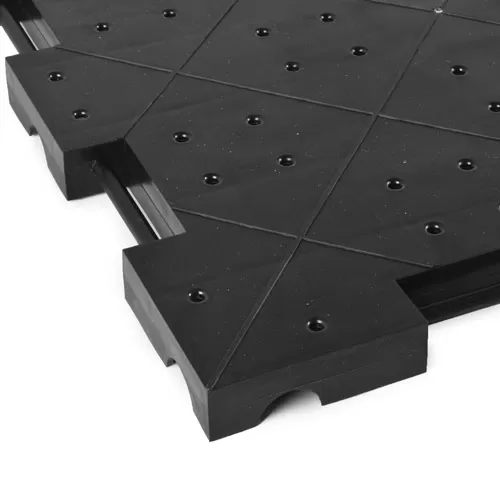
These firm plastic tiles have 3/4 inches of thickness, ensuring they can hold a significant amount of weight. They interlock tightly, and they have an anti-slip design, so if a little bit of water does collect on the surface, people will have less of a chance of slipping and falling. Plus, they can be installed over virtually any ground or floor surface.
